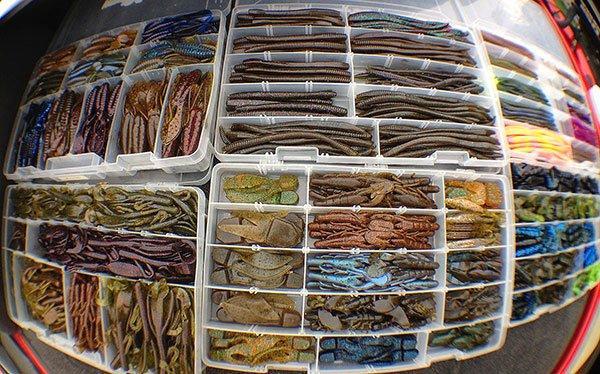KeepAmericaFishing.org has reported that Rep. Paul Davis of Maine has introduced a bill to ban the use of “rubber” baits for fishing in his good state. Being that soft baits haven’t been made out of rubber for some time, it stands to reason he doesn’t have much scientific evidence to support his bill.
The bill that was introduced reads as follows:
1 the State of Maine as follows:
2 Sec. 1. 12 MRSA §12654, sub- §1, as enacted by PL 2003, c. 414, Pt. A, §2 and
3 affected by c. 614, §9, is amended to read:
4 1. Prohibition. A person may not angle or fish other than by the use of the single
5 baited hook and line, artificial flies, artificial lures, except for artificial lures made of
6 rubber, and spinners, except that a person may take smelts in accordance with rules
7 adopted with regard to the taking of smelts.
8 SUMMARY
9 This bill prohibits the use of artificial lures made of rubber when angling or fishing.
According to KeepAmericaFishing.org:
KeepAmericaFishingâ„¢ is not aware of any study of fish in the wild regarding problems with soft baits. To the contrary industry research involving literally thousands of soft baits to test fish of many species (particularly bass and trout) has indicated minimal problems for the fish involved. The research experience is that the fish either regurgitate or pass the baits without problem. These studies fed baits appropriate for the size of the fish being tested. There is a wide variety of types, sizes and shapes of soft baits and few cause problems, even in laboratory experiments.
Maine has a rich history with angling and the sport has significant economic impacts to the state. Anglers in Maine provide a $614,401,455 economic infusion to the state each year supporting 6,723 Maine jobs. This economic engine from recreational fishing in Maine also provides $42.8 million in state and local tax revenue. Forty-four percent of Maine’s angling days are done by non-resident anglers, and this ban would affect not only bait and tackle shops but also all tourism businesses.
To make your voice heard on this issue, visit this link to KeepAmericaFishing.org.











